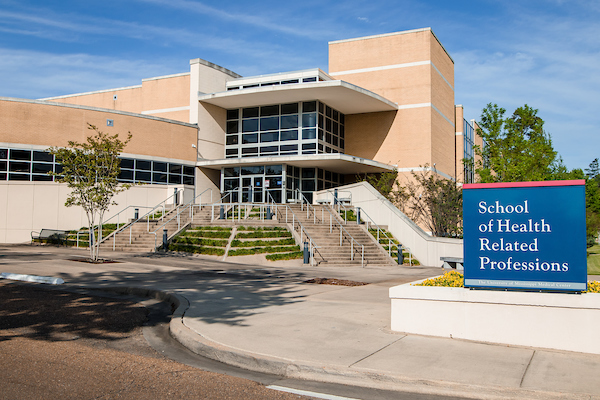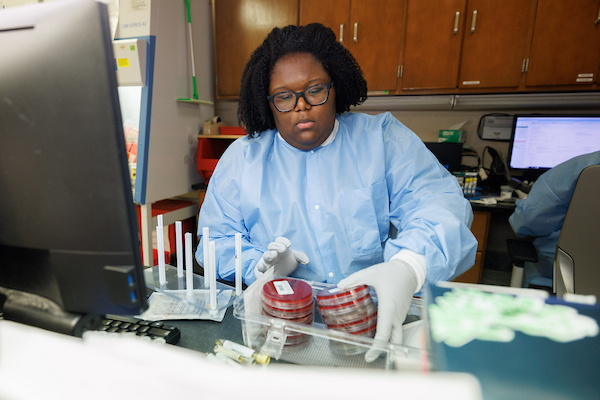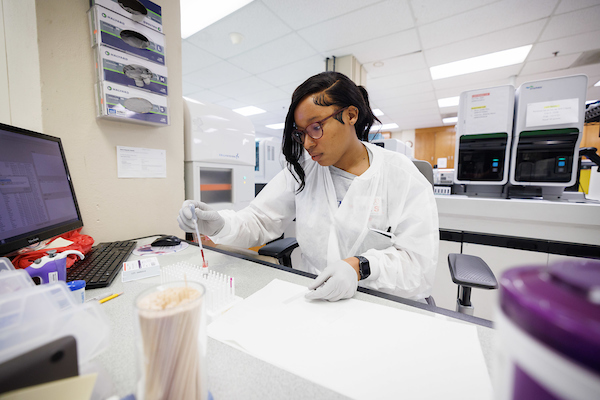- Development
- Learn More
- News
- 2025
2025

Longtime medical technologist funds SHRP’s first MLS scholarship
The first endowed scholarship benefitting the Medical Laboratory Science Program at the University of Mississippi Medical Center is being funded by a retired MLS professional who earned her degree more than a decade before the School of Health Related Professions was founded in 1971.
Jean C. Douglas of Batesville, a member of the University of Mississippi Class of 1960 who served the medical technologist profession for 44 years, has gifted more than $308,000 to the University of Mississippi Foundation and SHRP to establish the Jean C. Douglas Endowed Scholarship in Medical Laboratory Science.
The scholarship will be awarded to MLS students during each of their last two semesters of the program. The students will be selected by the school's Scholarship Committee using established school and donor criteria.
Medical laboratory scientists are highly skilled professionals who perform and evaluate diagnostic laboratory procedures on body fluids, develop new diagnostic procedures, supervise biomedical research projects, provide technical expertise and consultation, manage clinical and research lab departments, and analyze and implement lab information systems, among other duties.
Major areas of interest in medical laboratory science include hematology, transfusion medicine, clinical microbiology, clinical chemistry, clinical immunology, body fluid analysis and molecular diagnostics. UMMC's MLS graduates are eligible to take national examinations for certification as a Medical Laboratory Scientist.

Ironically, MLS wasn't Douglas' first choice for a profession: She originally wanted to be a diagnostician, but upon her graduation, the closest medical school that accepted female students was Georgetown University in Washington, D.C. She selected medical technology instead because “doctors do not make decisions until they get the lab work back.”
“It's a necessary profession," said Douglas, 86. "Although it was not my number one choice, it was something I enjoyed for the 44 years I was in the profession.”
Her distinguished career included eight and a half years helping to train medical technology students in clinical chemistry rotation at the University of Tennessee Health Science Center and decades of service at Methodist University Hospital in Memphis. Along the way, she and her husband, raised a daughter, who Douglas credited for influencing her to make the valuable contribution to MLS education in Mississippi.
“When I retired, I moved back to Mississippi, and after my husband died, I decided I wanted to contribute," she said. “My daughter said I could either do it while I was alive or she would do it after I died, so I decided to go ahead and do it.
“During the (COVID-19) pandemic, it seemed even more timely (to make this donation) because it seemed not as many people were interested in MLS as needed to have been.”
Having grown up on a farm with three sisters, all of whom attended Ole Miss, and one brother, who went to Mississippi State University, Douglas said she had not needed financial assistance to complete her training.
“We raised, picked and shipped okra to pay our tuition, books, room and board when we were at Ole Miss," she said. “We didn't need a scholarship. But I know there are a lot of other people who do.
“I am saddened by the number of people who are saddled by a number of huge student loans when they get out of school. I don't think they realized how much of a burden it would be on them. So I wanted to help out if I could.”

Even more than 20 years post-retirement, Douglas said she keeps up with changes in her profession, an attribute she hopes will be shared by recipients of the scholarship that bears her name.
“I would just like for the recipients to have a real desire to be a medical technologist,” she said. "I would like for them
to be pretty involved in medical technology and not just consider this as something they could do temporarily and then go on to another profession later on.
“I would like for them to do continuing education so they can keep up to date. That way they can stay current with the latest technology.”
Douglas considers her contribution to be a real investment in the future because she said there will always be a need for medical technologists.
“Automation was not thought of or in action when I graduated,” she said. "By the time I retired, all you had to do was put a label on a tube and place it in a machine.
“In the future, they may develop machines you can go up to and they can tell you everything there is to know about you. But we're not there yet. I think there still will be people needed to run the tests for a long, long time.”


